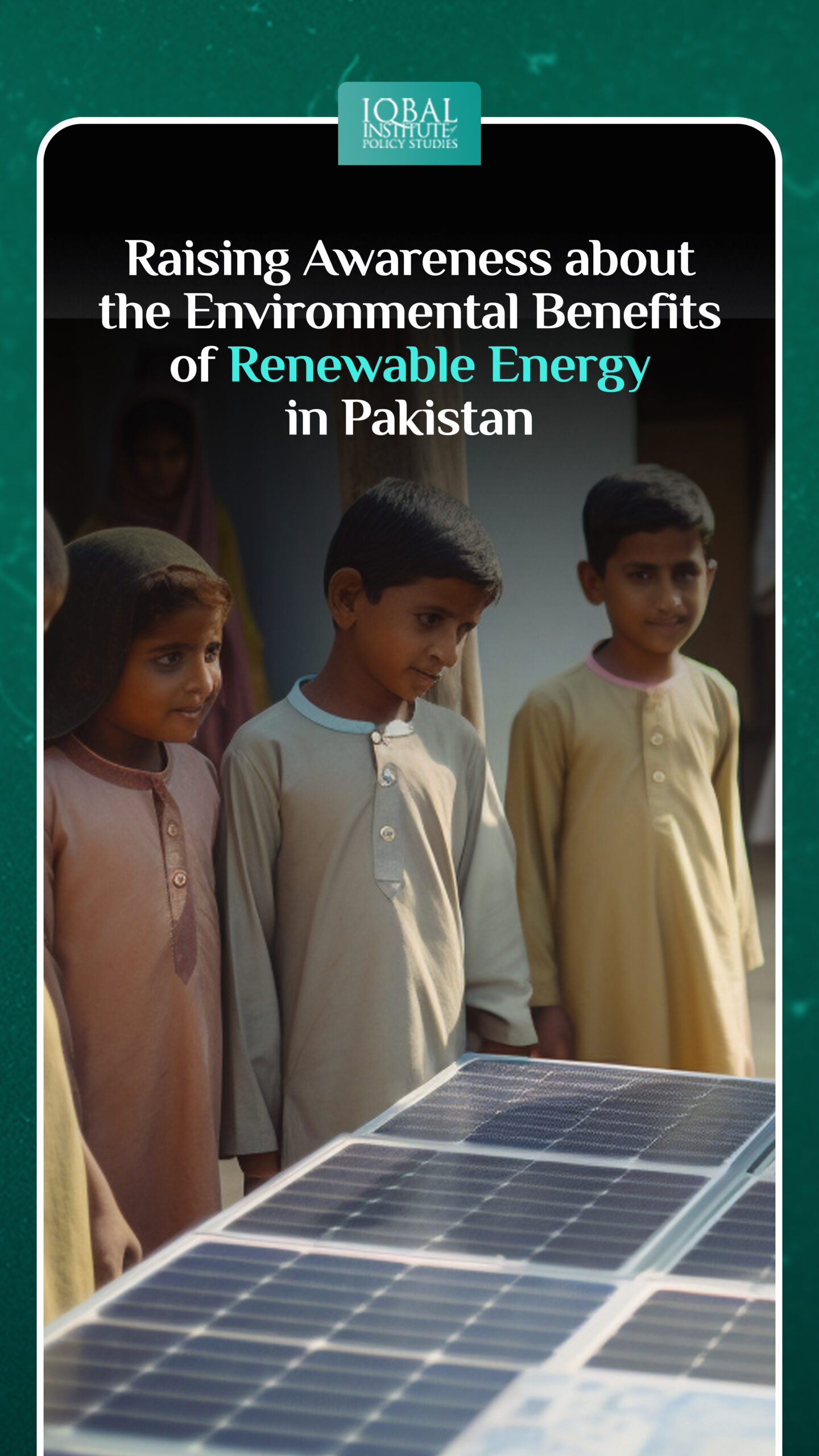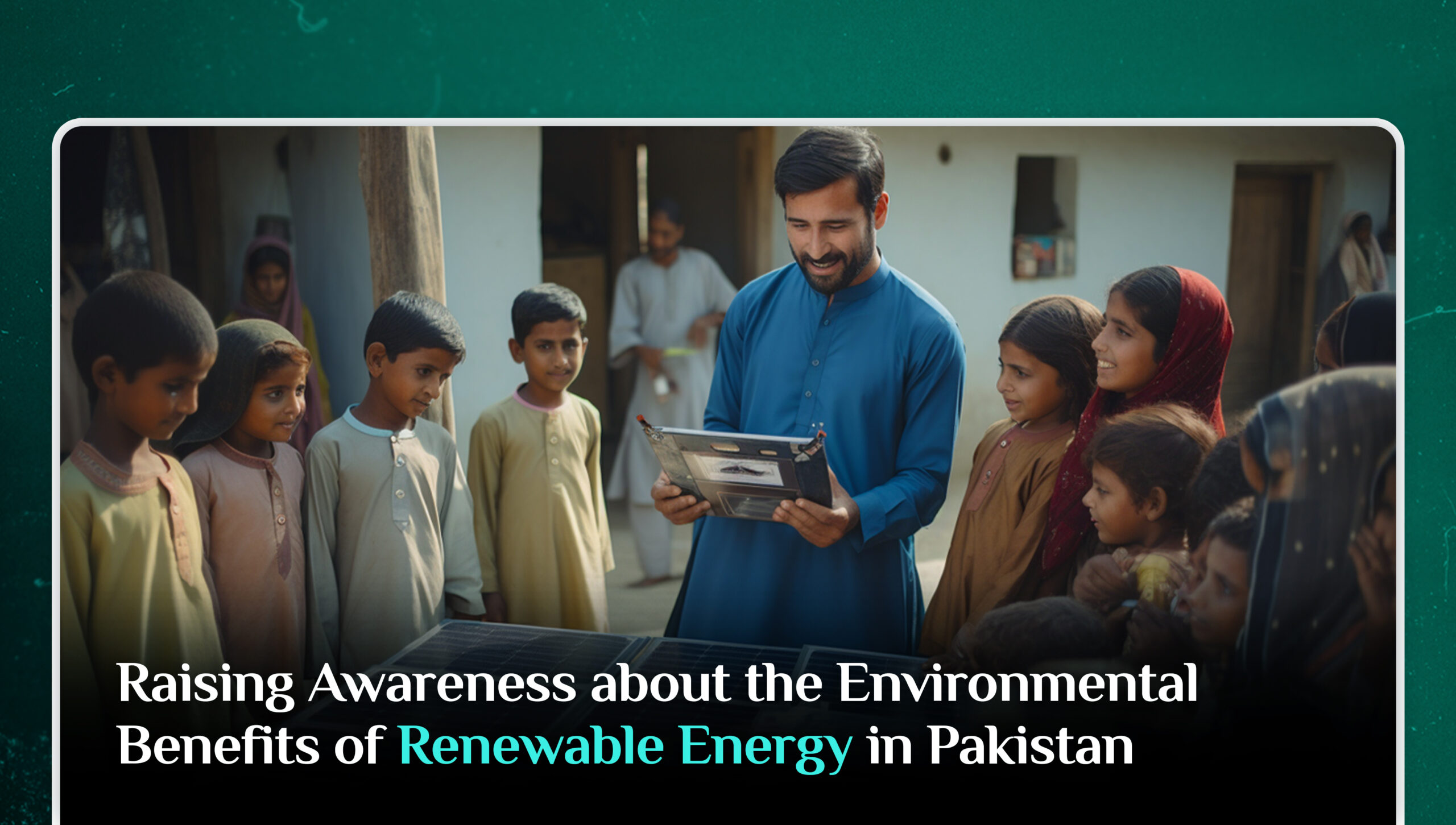Pakistan, a nation endowed with breathtaking natural beauty and abundant resources, faces a profound environmental crisis. Over the years, rapid urbanization, industrialization, and a growing population have led to increased pollution and environmental degradation. In recent times, Pakistan has taken significant strides towards addressing these challenges by embracing renewable energy sources. This blog will delve into the importance of raising awareness about the environmental benefits of renewable energy in Pakistan, shedding light on the positive impact it can have on the country’s environmental and economic landscape.
The Environmental Challenge in Pakistan
Pakistan confronts a multitude of environmental challenges that threaten the well-being of its citizens and the nation’s overall sustainability. These challenges include:
Air Pollution
The air quality in major cities such as Lahore, Karachi, and Islamabad frequently falls below safe levels due to industrial emissions, vehicular pollution, and crop burning. This has dire health consequences for the population.
Water Scarcity
Pakistan’s water resources are under significant stress due to over-extraction, contamination, and the impacts of climate change, leading to water scarcity and deteriorating water quality. The situation is exacerbated by the inefficient use of water in agriculture.
Deforestation
Uncontrolled deforestation has led to soil erosion, loss of biodiversity, and increased vulnerability to natural disasters such as floods and landslides. The forests that act as a buffer against these calamities are rapidly disappearing.
Energy Crisis
Pakistan’s energy sector faces constant challenges, with an inconsistent energy supply and overreliance on fossil fuels that contribute to environmental degradation and climate change.
Renewable Energy as a Solution
Renewable energy, harnessed from sources such as sunlight, wind, and water, offers a sustainable and eco-friendly solution to many of Pakistan’s environmental challenges. The transition to renewable energy can yield numerous benefits:
Reduced Greenhouse Gas Emissions
Moving away from fossil fuels to renewable energy sources significantly reduces greenhouse gas emissions, thereby helping combat climate change.
Improved Air Quality
Renewable energy technologies produce no air pollutants, contributing to cleaner air and better public health, particularly in urban centers where air pollution is a major concern.
Water Conservation
Renewable energy technologies require significantly less water for power generation compared to conventional fossil fuel-based power plants, helping address the water scarcity issue.
Sustainable Economic Growth
The renewable energy sector has the potential to create jobs, attract investments, and reduce the country’s dependence on costly fossil fuel imports, which can contribute to sustainable economic development.
Energy Security
By diversifying its energy sources, Pakistan can achieve greater energy security, reducing its vulnerability to energy crises and external energy shocks.
Challenges in Raising Awareness
While renewable energy holds immense promise, several challenges must be addressed to effectively raise awareness about its environmental benefits in Pakistan:
Lack of Information
Many citizens lack knowledge about renewable energy technologies, their benefits, and how they work. This knowledge gap hinders the public’s ability to make informed decisions and advocate for renewable energy.
Myths and Misconceptions
Misinformation and myths surrounding renewable energy can hinder public support and lead to skepticism about its effectiveness.
Infrastructure Gaps
The transition to renewable energy requires substantial investments in infrastructure, such as solar panels and wind turbines. The initial costs can be a barrier to implementation for individuals and businesses.
Political and Economic Interests
Fossil fuel interests can sometimes obstruct progress in the renewable energy sector, as powerful lobbies seek to maintain the status quo.
Efforts to Raise Awareness
To overcome these challenges and promote the environmental benefits of renewable energy in Pakistan, several actions can be taken:
Educational Campaigns
Government and non-government organizations can launch comprehensive public awareness campaigns. These campaigns should effectively convey the environmental advantages of renewable energy and make the information accessible to a wide range of people, including rural communities.
School Curriculum Integration
Renewable energy and environmental education should be seamlessly integrated into the national school curriculum. This integration ensures that young generations grow up with a robust understanding of these concepts and their importance.
Incentives and Subsidies
Governments can provide incentives and subsidies for renewable energy projects, making it more economically viable for individuals and businesses to adopt these technologies. This can also stimulate investment and job creation in the sector.
Media and Public Engagement
Engaging the media, celebrities, and influential figures in advocating for renewable energy can help create a broader public discourse. High-profile endorsements can help counteract myths and misconceptions.
Local Initiatives
Encourage local communities to develop small-scale renewable energy projects. These community-driven efforts can serve as tangible examples of the benefits of renewable energy adoption and inspire broader community engagement.
Research and Development
Invest in research and development to create innovative, cost-effective, and efficient renewable energy technologies tailored to Pakistan’s unique environmental conditions. This can stimulate interest and innovation in the sector.
International Collaboration
Collaborate with international organizations and countries with expertise in renewable energy. Leveraging knowledge, resources, and technology transfer from global partners can accelerate Pakistan’s transition to renewable energy.
Conclusion
Raising awareness about the environmental benefits of renewable energy in Pakistan is not just a necessity; it is a tremendous opportunity to combat pressing environmental challenges while simultaneously boosting the country’s economic growth. As public understanding of renewable energy and its advantages grows, Pakistan can make substantial progress in achieving a sustainable and cleaner future. It is a collective responsibility to educate the masses about the potential of renewable energy to improve the environment and the quality of life for all Pakistanis. With concerted efforts, a clear vision, and decisive actions, Pakistan can not only address its environmental challenges but also emerge as a global leader in sustainable energy practices. The benefits of this transition extend far beyond environmental improvements; they include energy security, job creation, and economic growth. By ensuring that the masses are educated and informed about these benefits, Pakistan can chart a path to a brighter, cleaner, and more sustainable future.
This article is written by Radma Noman. Radma is a research analyst at the Iqbal Institute of Policy Studies (IIPS).



Leave a Reply